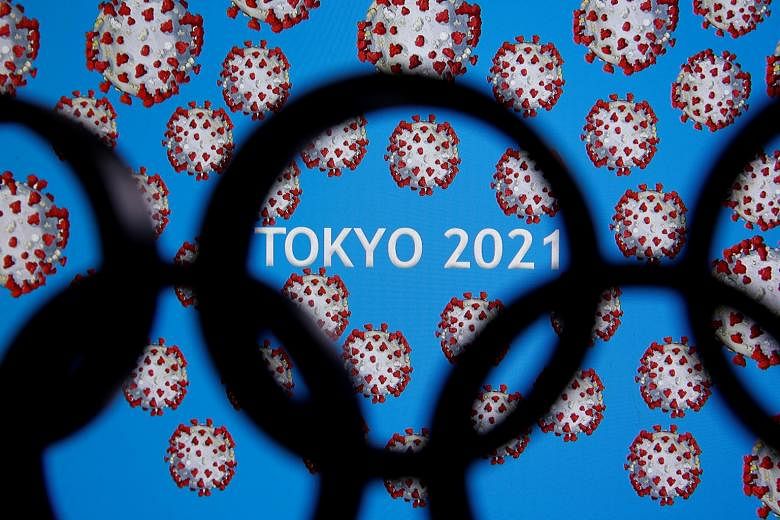MONACO • The postponement of the Tokyo Olympics will allow athletes banned until this year to qualify for the Games next year, as doping bans are based on time periods and not events.
Last month, the International Olympic Committee (IOC) and the Japanese government agreed to postpone the Tokyo Games, due to start in July, to next year because of the impact of the coronavirus pandemic that has killed over 150,000 people globally.
World Anti-Doping Agency (Wada) bans are designed to prevent athletes from competing during an Olympic cycle. But Athletics Integrity Unit (AIU) head Brett Clothier said stopping athletes whose bans expire this year from competing next year would lead to legal complications.
"It's an anomaly that the Olympics have moved so some athletes will benefit from that," he said. "It's an unfortunate situation but one that is very clear under the legal framework, so the ban is based on time and not tied to particular events."
The AIU, an independent body that oversees doping penalties, estimates 40 of about 200 banned athletes from athletics would benefit from the delay, reported SB Nation.
Not long after the IOC announced the Games postponement, United States Anti-Doping Agency (Usada) chief Travis Tygart said that the delay would open the door for convicted drug cheats to compete for medals.
With no precedent, the IOC or Wada, which will implement an updated code in January, may have to consider a structure like that used by Major League Baseball, where a player suspended during the season for a drug violation is not eligible for that year's post-season.
For now, the Tokyo anomaly could prove to be a double-edged sword, however, with Clothier saying athletes caught after August this year would be banned for two Olympic Games - in Tokyo and Paris - since they fall within the four-year sanction range.
Wada president Witold Banka told the Associated Press (AP) that officials cannot "cherry pick" who is allowed to compete due to coronavirus implications, particularly if they have served their time.
But Irish race walker Brendan Boyce told AP that the time served would hardly constitute as punishment if "they haven't really missed the events they were supposed to miss".
With social distancing protocols and lockdowns in place in several countries, Clothier said the biggest impact the pandemic has had on anti-doping agencies is the lack of regular testing.
"The restrictions on movement that are happening in many countries are having a severe disruption to testing processes around the world," he said.
Usada said a new self-administered doping test, where athletes are monitored live by a doping control officer, could help protect clean athletes, as the agency tries to ensure no one gets a "free pass" from reduced testing during the pandemic.
Clothier said that though current testing limitations give dopers an opportunity to cheat, agencies should be proactive in identifying athletes prone to cheating while also cracking down on the root causes of doping.
"One thing that needs to be understood though is testing for us isn't just a numbers game," he added.
"We use intelligence and investigation methodologies to make sure we are testing the right athletes we need to at the right time."
REUTERS











